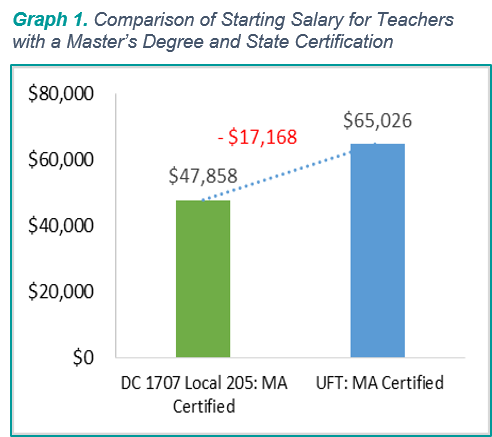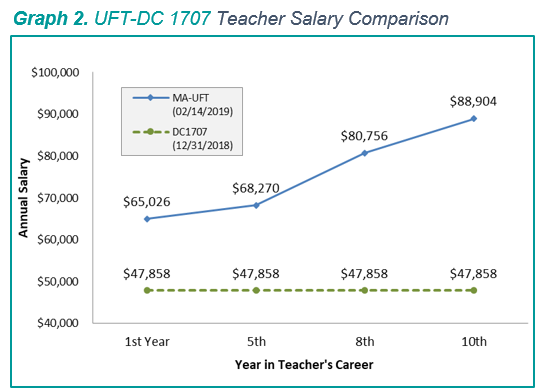May 8 , 2019
The Path to Salary Parity in Early Childhood Education
By Mai Miksic
The New York City Council is currently pushing to add $89 million to Mayor Bill de Blasio's recently released City budget for the next fiscal year to raise the salaries of thousands of early childhood educators in community-based settings. This salary parity proposal, which will be the subject of a May 8 forum sponsored by the Center for New York City Affairs at The New School, draws on work by the Day Care Council of New York, Inc.
Since its inception in 2014, the City’s Pre-K for All effort has become the largest of its kind in the nation. Some 92 percent of all programs that are part of it meet or exceed quality standards. To achieve this goal — and with record speed — the mayor leveraged existing early education resources, including community-based organizations (CBOs) which had been already providing early education for decades. As a result, CBOs make up 60 percent of all Pre-K for All programs.
Despite this success, there were unintended consequences for CBOs. In addition to competition for children among programs that has resulted in overcrowding in public schools, salary disparities between CBO lead teachers and their public school counterparts have created a staffing crisis that threatens the viability of community-based early childhood programs. That’s because if teachers are not adequately compensated for their work, there is increased risk of burnout and high turnover. Interruptions in staffing have serious implications for a child’s development and for program quality.
To address these problems, the Day Care Council of New York proposes salary parity for certified teachers and salary increases for the directors of the child care centers where they teach as a first step towards stabilizing the early childhood education system. This would create a pathway to parity for all support staff in the future. The proposal includes four components:
Bring all certified group teachers up to same salary as their equally qualified public school counterparts immediately via contract amendment.
Maintain the current 22.8 percent salary differential between certified teachers and center directors.
Provide an annual 2.8 percent cost of living adjustment (COLA) for the subsequent four years.
Re-negotiate salary increases for all other support staff in labor negotiations starting September 2020.
Graph 1 shows the starting salary for a certified teacher with a master’s degree in DC 1707, the union representing teachers and all support staff in unionized CBOs providing early childhood education, compared to a teacher in the United Federation of Teachers (UFT), which represents teachers in the city's public schools. As Graph 2 shows, salary disparities grow exponentially over time due to the lack of salary increases for teachers in CBOs and the tenure steps, longevity bonuses, and COLAs that UFT teachers receive.
The chart below details the costs of our salary parity proposal. The City Department of Health and Mental Hygiene, which regulates child care and Head Start programs and keeps track of teacher qualifications, provided the main dataset for staffing levels. That dataset includes the total number of teachers and their qualifications. The analysis used salaries from the union collective bargaining agreements and a salary survey. Costs that would change as a function of the salary increase were also included, such as the increased employer contribution to the pension and Social Security and Medicare contributions, both of which are paid for by the City.
We calculate the first-year cost of salary parity for certified teachers and increases for center directors to be $83 million ($62 million for teachers; $21 million for directors). We also propose $6 million in one-time bonuses for support staff in DC 1707.
Decades of research have demonstrated the importance of early education, especially for children from economically and historically disadvantaged backgrounds. Researchers have also cautioned that the financial returns on investments in early childhood are contingent on the quality of programming. High-quality early childhood education programs require high-quality teachers. By July this year, EarlyLearn, the City’s subsidized early childhood education program, will be merged with Pre-K for All under the City Department of Education, creating a birth-to-high-school continuum of education that includes a truly unified early childhood system. That system should include pay parity for all qualified teachers.





